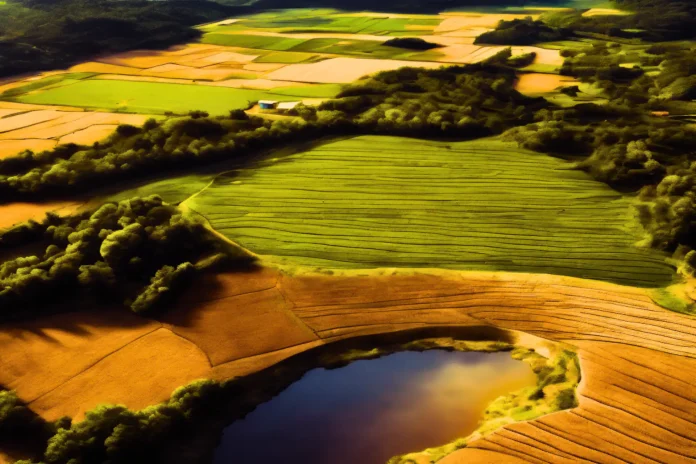In a new evolving study, scientists propose a novel approach to address the impacts of land use on food production, conversing water, and increasing carbon storage.
Methods of food production have evolved without considering the Earth’s biophysical potential. As the world population expands, the need for more food increases, transforming natural landscapes into croplands and pastures. Unfortunately, these activities often lead to deforestation and extensive irrigation, impacting water resources and carbon storage. According to new research presented by the Karlsruhe Institute of Technology (KIT) and Heidelberg Institute for Geoinformation Technology (HeiGIT), the challenges mentioned above can be solved by reimagining how we utilize Earth’s land.
Land Use for a Sustainable Future
To explore the concept of shifting agricultural activities to areas where they could be more efficient, scientists combined a unique vegetation model with an optimization algorithm. This combination allowed us to envision alternative global land use scenarios. This simulation revealed a promising outcome: relocating fields, pastures, and natural vegetation to prime areas and restricting croplands to regions that don’t require extensive irrigation systems.
Impacts of Land Use
Examining the impacts of land use, the optimized strategy could result in an average increase of 83% in food production, an 8% rise in water availability, and a 3 % expansion in CO2 storage capacity. These benefits become even more significant when considering the potential prioritization of one variable over the other. The research emphasizes the importance of preserving tropical and boreal forests due to their exceptional CO2 storage capacities. Additionally, mild latitudes are identified as ideal cropland areas, compensating for the loss of tropical and boreal forests.
Future Challenges
While the prospect of such substantial land use changes might seem complicated, the study emphasizes the necessary shifts due to climate change. The researchers suggest a proactive approach rather than letting these changes occur haphazardly. By managing land use changes considering biophysical potential alongside social aspects, we can safeguard the global food supply, even with unfavorable climatic conditions.
This study is a glimpse into a more sustainable future and highlights the importance of strategic planning and careful resource management. We stand on the edge of a critical moment in our planet’s history, embracing innovative solutions.
As we stand at the crossroads of our planet’s history, this study unveils a path to a more sustainable future through strategic land use planning. The impacts of land use offer insights into innovative solutions crucial for safeguarding the global food supply amid evolving climatic conditions.



